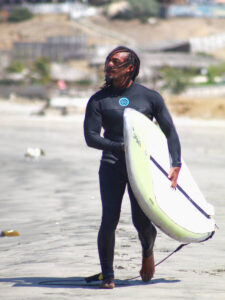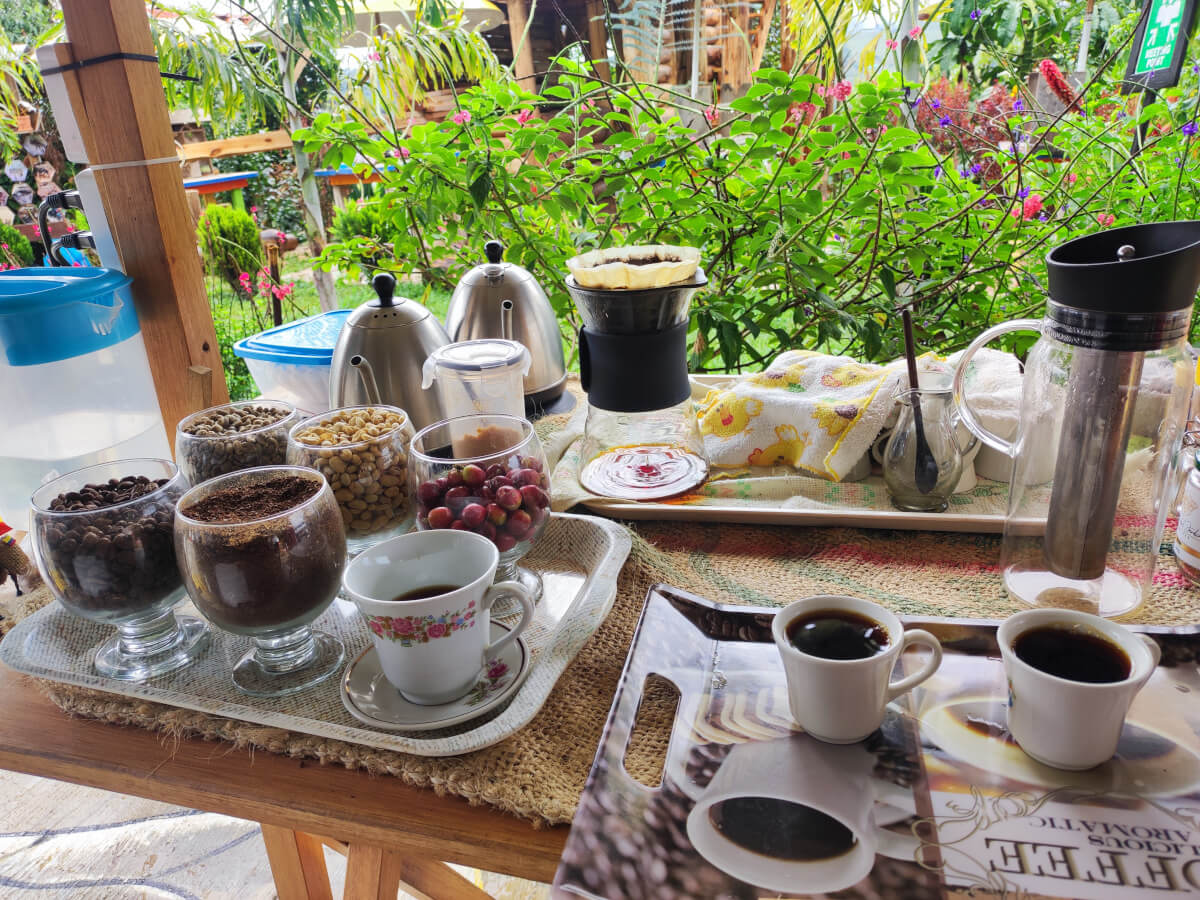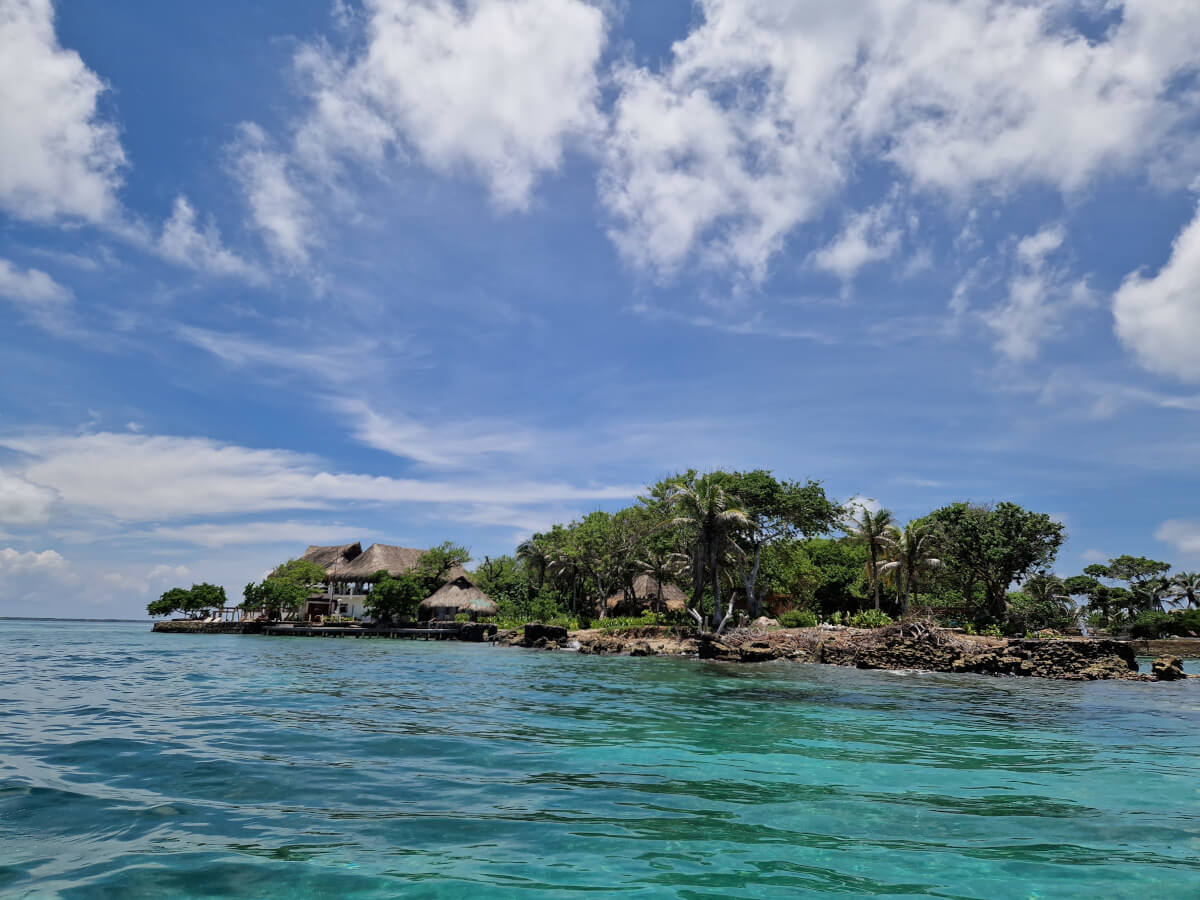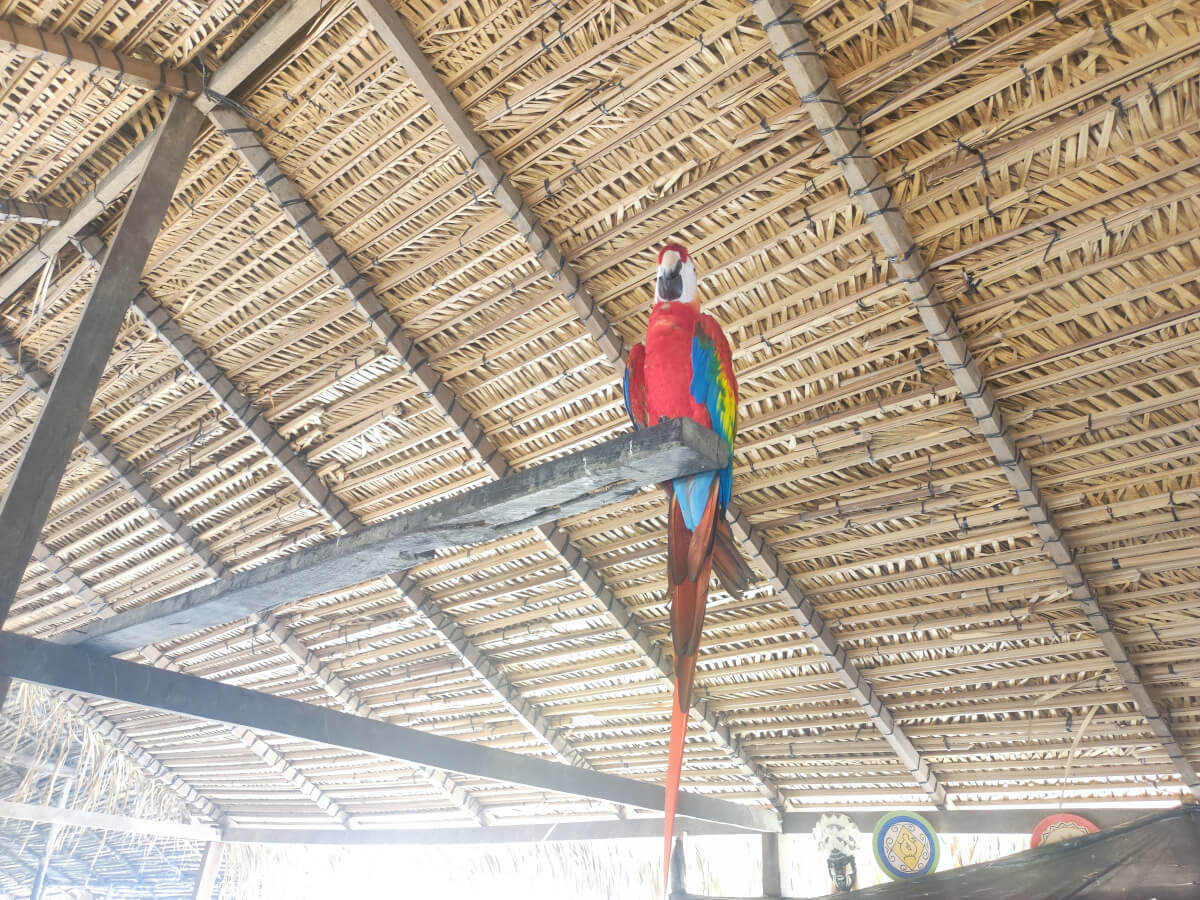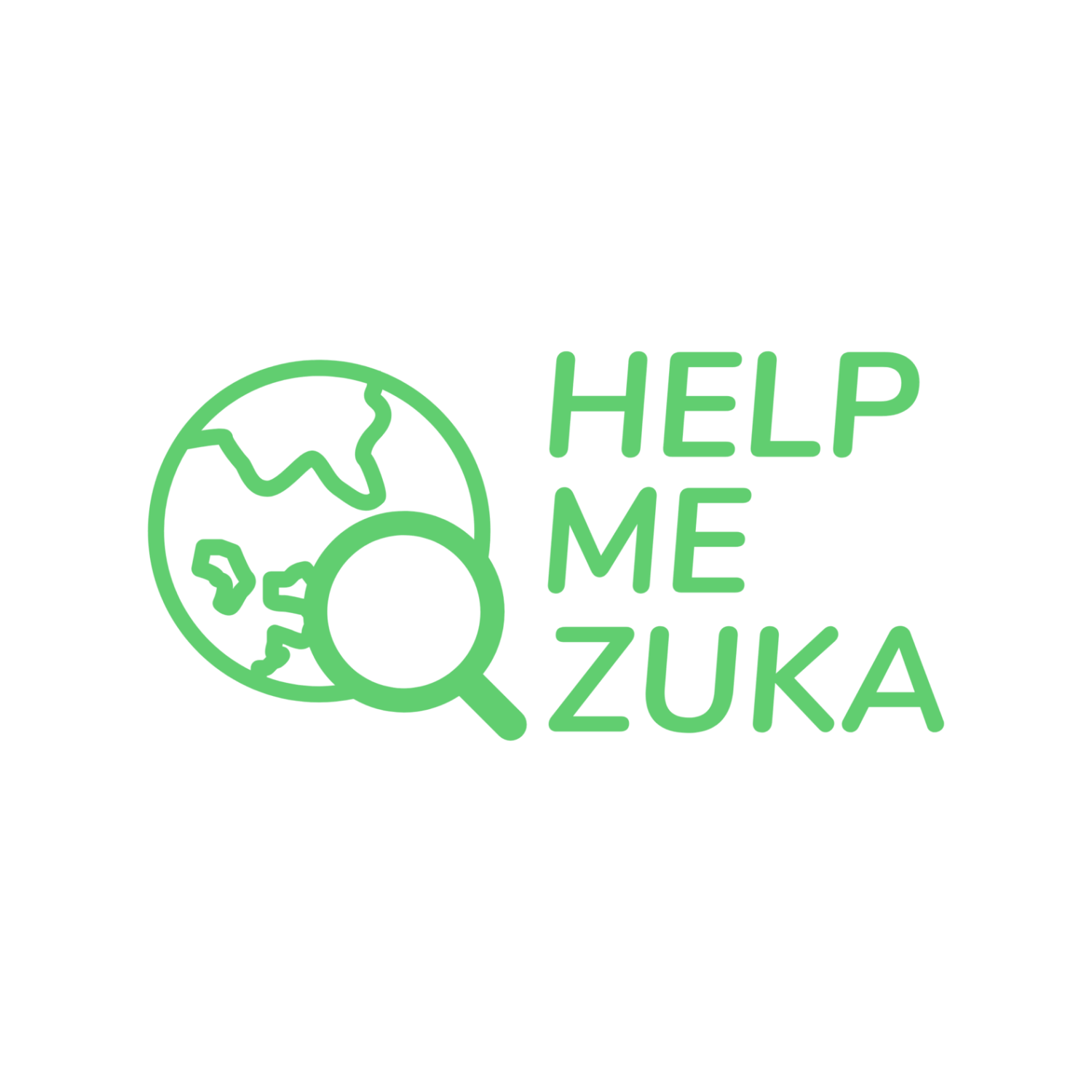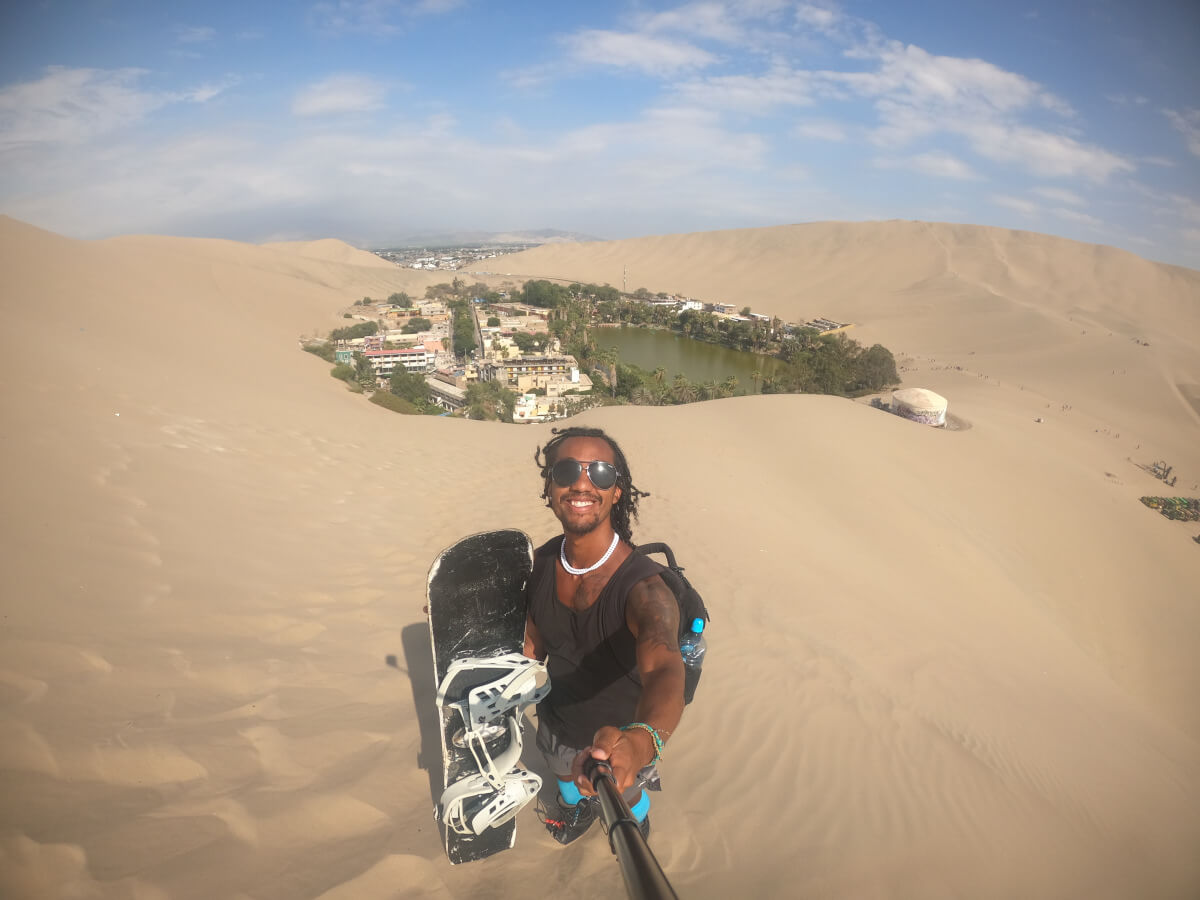Many of my friends want to visit the Balkans but don´t know what to expect. Despite gaining popularity, the Balkan countries are still not very touristy (the exception is Croatia). Compared to other European countries, the Balkans are not as well-developed, and finding your way around might be difficult. This is why I wrote this post with 30 essential Balkan tips you should know before traveling to the Balkans.
I have lived in Serbia for eight years and have traveled to the neighboring countries plenty of times. I have been in many situations while traveling and have learned how to travel in the best way possible. Even though I speak about different countries with all their uniqueness, you should be aware of some things that apply to all of them.
In this blog post, I will share with you everything that you should know about the Balkan countries.
Timing matters! The best time to visit the Balkans is from May to September, when the weather is sunny and the energy is high.
Keep reading to know more about these Balkan tips to make your stay easier and less frustrating.
Table of Contents
What do I mean with the Balkans?
Before reading the useful balkan tips you should know before traveling there, I need you to know what I mean by the Balkans.
There is no straightforward definition.
Geographically, the Balkans, or the Balkan Peninsula, is a geographical area in southeastern Europe. The Balkans encompass Albania, Bosnia and Herzegovina, Bulgaria, Kosovo, Montenegro, and North Macedonia. Mainly within the Balkan Peninsula are Greece and Serbia. Croatia, Slovenia, Romania, Turkey, and Italy are partly within the Balkan Peninsula.
Above all, this post mainly discusses Croatia, Bosnia and Herzegovina, Bulgaria, North Macedonia, Kosovo, Montenegro, North Macedonia, Romania, and Serbia.
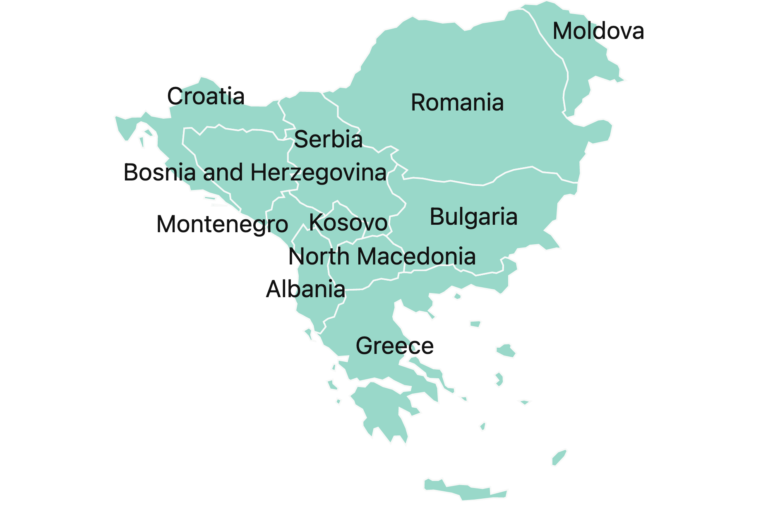
1. Emotional connection will bring you anywhere
Don´t expect to go into a shop or any service provider and immediately talk about the issue you are facing. Ask them how they are doing or where they are from, and tell them anything about yourself. Just anything, you are a foreigner and Balkan people are very curious about whatever you tell them about you.
Then, slowly introduce your issue or problem and ask whether they could help. Please don´t assume it´s their job and that they´ll help you immediately. No. Just talk. Small talk will bring you very far in the Balkans.
The bottom line is that people here love to feel a personal relationship and trust first before trying to help you. My German friends traveling in the Balkans need to get used to this. They are used to seeing the other person as a service provider and have their issue solved without small talk. But putting some effort into the other person will do wonders! And you have no other choice either if you want to get things done. It would help if you learn the small talk skill there.
2. Have patience - everything is slower
Everything runs slower in the Balkans.
Sitting in cafes and restaurants for hours and hours and taking everything slowly is quite common across the Balkans. People like to enjoy whatever they are doing at the moment. In addition, while trying to get things done, people want to socialize with you and get to know you better, so things go slower. In conclusion, always calculate more time to get anything done to avoid frustrations.
Thinking about flying to Serbia? Check flight options on Kiwi, it's my favorite way to book plane tickets:
3. Be prepared to overshare personal stuff
People everywhere in the world have different definitions and tolerance of privacy and private space.
In the Balkans, this tolerance is very high. After the initial ´hello,´ people feel comfortable asking how much you earn or how much you pay for rent. I haven´t gotten used to this lack of boundaries and am unsure if I want to get used to it.
Even at the doctor´s, my female friends told me that healthcare professionals can ask why you don´t have children yet if you are a woman in your 30s.
Once, a friend of mine went to the police station in Belgrade to report a missing passport. A policeman started chatting with her and asked her all possible questions utterly unrelated to the case: Why she is not married yet, whether she is looking for a foreign or local boyfriend, why her mother doesn´t live with her, how much money her mother makes, etc.
In my first week living in Belgrade, I had to exchange the local currency and went to an exchange office. When I told the old guy I would like to buy 1.000 Euros, he was utterly shocked and asked why I needed this money. Eventually, I got my money, but people love to stick their noses into your business.
You might find this weird. Yes, it is, but it´s normal here.
4. Respect the region´s troubled history
The region has experienced many wars throughout history; the most recently happened in the 90s. Many people lived through it, and passions ran very high.
Telling about your travel plans to neighboring countries is fine, but be respectful when asking questions about the war or political outlook.
For instance, try asking locals about their opinion (if you care) but don´t impose your opinion on them, whose fault was what or which countries´ independence should or should not be recognized unless you know that person well. People here are still sensitive about the past and politics, so keep that in mind, it’s a very important Balkan tip.

5. It's safe to travel
People who have never been to the Balkans often ask questions about safety. Yes, it is entirely safe and safer than most Western European countries.
The Balkans seem to have a negative connotation regarding safety, probably because of the 90’s wars and the atrocities committed. You must understand that the conflicts have been over for over 30 years, and the Balkan countries are among the safest to visit.
If you are still wondering about additional Balkan travel safety tips, be aware that petty theft can occur in crowded markets or on public transportation, as in many parts of the world, but in the Balkans, it is not very frequent.
6. The strong coffee culture
People sit for hours in a cafe sipping on one coffee. As I said, everything runs slower in the Balkans, and so does the coffee-drinking process. Of course, only some people in the Balkans are into coffee, but wherever you go, you will find many people sitting in cafes for hours.
In the beginning, I always wondered why that is. Unemployment is relatively high in many parts of the region, so people sit in coffee shops and restaurants all day. For another, people are very social in the Balkans and prioritize catching up with their friends over coffee. But many work meetings also occur over coffee, so it´s normal to see the cafes packed on a word day at midday.

Journey Through Serbia: The Ecotourism Travel Guide You Need
Get your hands on the ultimate travel guide to uncover the hidden gems of ecotourism in Serbia. Don’t miss out on this opportunity to explore the country like a local!
7. Smoking indoors
One of the things I never got used to is indoor smoking. In many countries in this region, people smoke inside and a lot generally.
Smoking in cafes, restaurants, and elsewhere is expected in Bosnia and Serbia.
Cigarette smoke is one of the main reasons I avoid going out during winter in Belgrade.
The main fact about this Balkan tip is that this is just something you have to get used to. If you complain, you won´t change anything and will only anger people. Smokers are a large part of the population in the Balkans.
8. Always have some cash on you
You can pay mainly by card in big cities like Belgrade, Novi Sad, Zlatibor and Nis, but it will be more challenging outside of these cities.
Hence, always have some cash on you, as it can get challenging to find ATMs in smaller villages. Anyhow, whether in a big city or not, you need to leave tips, it’s part of the Balkan culture, so it’s good to have cash with you.
9. Leave tips
Salaries are low, so leave a tip if the service is good. People usually tip 10% of the bill. Nobody will scold you for not tipping, but be generous to show how you enjoyed the service and food provided to you.
10. It's a region for meat lovers
If you love eating meat, you will be pleased with this Balkan tip. If not, then you might have some issues.
In Croatia, you can still enjoy seafood (if you eat seafood), but in Bosnia, Romania, and Serbia, getting vegetarian options will be more difficult. You can always order a salad, potatoes, and some traditional pies with either spinach, potatoes, or another filling but apart from that, it´s getting a bit more complicated with vegetarian options, especially outside big cities.
In general, I don´t find Balkan cuisine very diverse. This is different in Greece and Turkey, where they have so many other dishes. But mainly in Bosnia, Serbia, and Croatia, the main options are Pljeskavica, Cevapcici, Burek, Sarma, and roasted lamb. For the first three or four days, you will try different things, but after some more days, you will have tried it all.
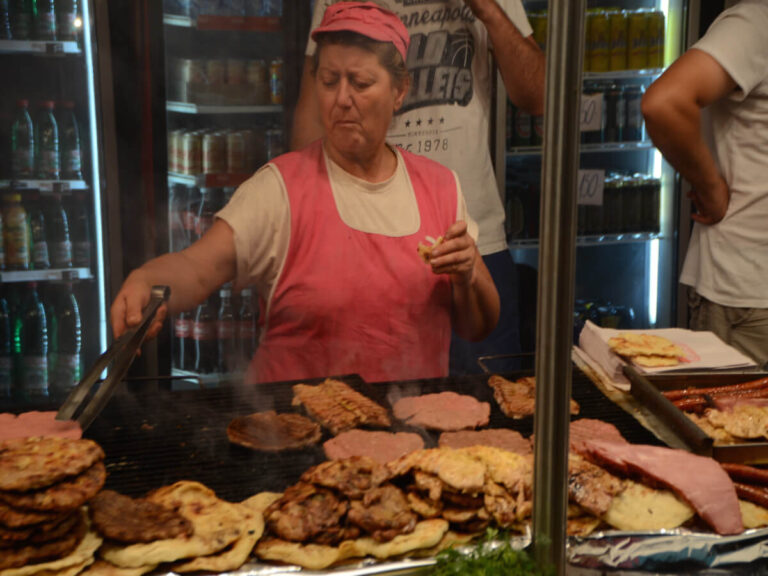
11. Limited international food options
Not only is there a lack of vegetarian options or vegan options, but also a lack of international food options.
You will find Pizza and pasta, which are mainstream in the Balkans. However, Thai, Korean, Spanish, or other international food options are already much more difficult to find.
Let´s take Belgrade as an example. It´s the Balkan´s biggest and most urban city, yet you will find minimal international food options. It´s been changing recently, and I hope that in a few years the amount of options will increase.
12. The many street dogs
Be prepared to see a lot of dogs in the streets and the villages!
Unfortunately, many owners dump their unsterilized dogs on the street, where they continue to reproduce. You will see less of them in the capital cities but more outside in smaller towns.
I love animals (I am a dog person), and it saddens me to see abandoned dogs everywhere.
Even if you love dogs, be careful, though. It happens that people get attacked by a group of stray dogs.
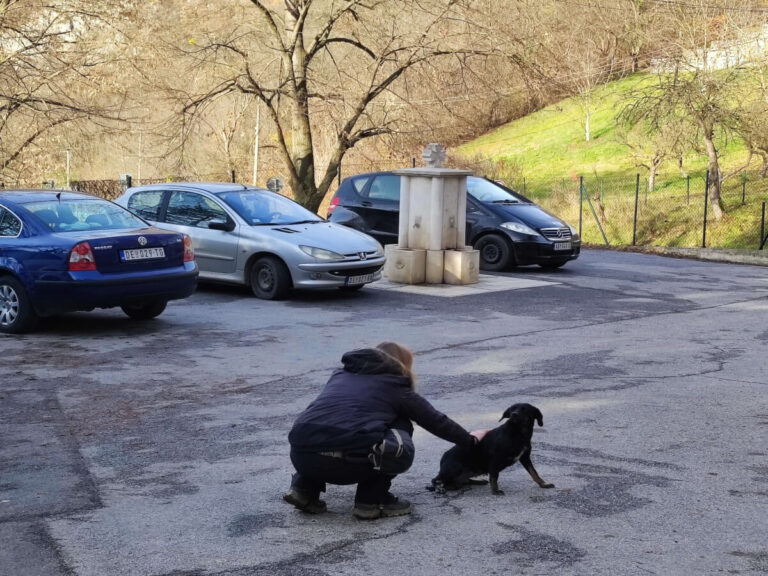
13. Beware of animals on the roads
Not only are there many stray dogs in the cities but also outside. Be careful while driving. There are always some animals on the road; cows, goats, donkeys, and dogs are the animals you will encounter for sure while driving.
14. And beware of wild animals in nature
Nature in the Balkans is breathtaking, and I love to spend my free time in nature.
The Balkans are home to bear populations, wolves, and poisonous snakes. Inform yourself about the area before you decide to go on a hiking trip or camping.
The Tara National Park is one area in Serbia known to have bears, but Bosnia, Romania, Croatia, Bulgaria, and North Macedonia also have bears.
Another animal to watch out for is the famous Poskok snake or Horned Viper. This snake is highly venomous and one of Europe’s most dangerous snakes.
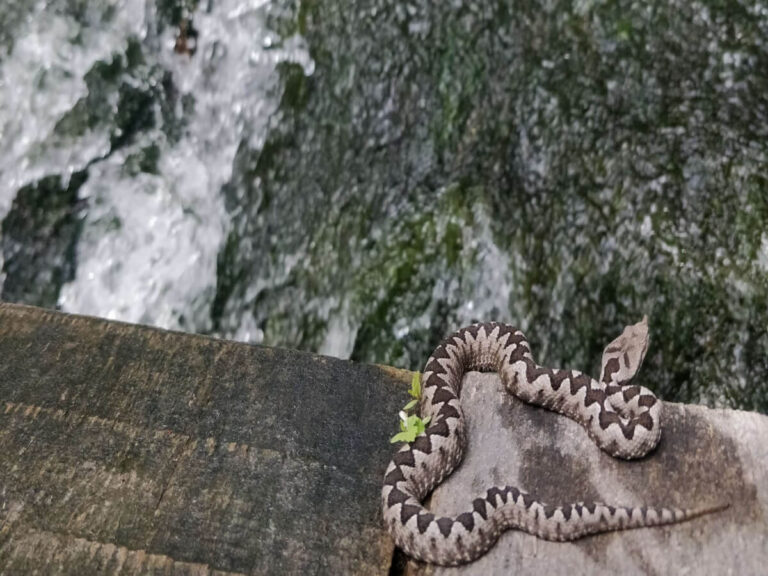
15. Watch out for landmines
Landmines are still a severe issue, mainly in Bosnia and parts of Croatia.
Under no circumstances go into woods or remote areas without knowing anything about that area. Get your information first. It´s hazardous. There were still some 180.000 unexploded mines in Bosnia alone, and only 130.000 were removed. These areas are marked, but be careful to see the signs and not to go inside these areas.
16. It´s still cheap but slowly changing
Food, drinks, and partying are cheaper in the Balkans, but this is slowly changing.
Spending your summer vacation at the Albanian Rivera is cheaper than in Croatia or Montenegro, where prices have skyrocketed in the past years.
Partying in Belgrade will be cheaper than in Berlin or other European capitals. Still, rents and accommodation prices are now costly and even exceed the costs of Western European capitals in some cases (mostly for AirBnb’s).
For a quick Balkan budget travel guide cheat sheet: Eat in local restaurants, take overnight trains between capitals when possible, and look for family-run pensions on Booking instead of hotels.
Going to Albania and/or North Macedonia? Your wallet will thank you.
17. English is widely spoken
An essential Balkan tip for language is necessary to be in the list. You won´t have any issues speaking English in the Balkans. I admit the level of English fluency is not as in Sweden or the Netherlands, but you won´t have any problems finding your way around. And if they don´t know English, then try maybe German. Many people have a connection with Austria, Switzerland, and Germany and might know some Germans.
All in all, I was the most impressed by the Albanian people´s language skills: Italian, Greek, Albanian, English, and German; they seemed to speak every European language.
18. World´s worst air quality
A scary fact is that most Balkan countries have the worst air quality.
A few factors contribute to hazardous air quality in the Balkans. One is that 16 coal-based power plants in South East Europe produce more pollution than the rest of Europe combined.
According to the World Health Organisation, Bosnia has the fifth-highest mortality rate from air pollution worldwide.
Belgrade regularly ranks number one as the worst air quality in the world.
Croatia ranked the country 35 among the worst polluted countries in the world.
The situation is slightly better in Romania, where air pollution is three times more than recommended by WHO.
19. Not bike friendly
If you like to explore a new city or country by bike, you will be a bit disappointed with this info from all of the Balkan tips in the list. Cycling paths are not a thing; generally, cycling can be pretty dangerous. It doesn´t mean you cannot do it, but you must be fearless. The infrastructure has not yet provided a standard and safe cycling experience. Also, there are not many places where you can rent a bike.
I’m used to cycling often in Serbia. One thing I do is research about one city where I can reach using alternative roads. From Belgrade, I had great experiences cycling to Valjevo and Novi Sad.
If you want to read more about one of my cycling experiences in the Balkans, you can read about cycling in Montenegro and Albania.

20. The dangerous roads
When traveling through the Balkan countries, it’s essential to keep some Balkan tips in mind, especially regarding transportation. There are only a few parts of the region with good highways. Mostly, you will be navigating smaller roads without good maintenance.
The Balkans is a mountainous region, and driving can be dangerous. Sharp curves, tight streets, and reckless driving behavior are what you will encounter most of the time. Of course, your experience can be very different. If you drive from Belgrade to Zagreb, you will be fine, as you will go on the highway the entire time.
21. Every country has its own currency
Visiting the Balkan region, you will have many different currencies in your wallet. Here is an overview of all the coins used:
- Serbia: Serbian Dinar (RSD)
- Bosnia and Herzegovina: Convertible Marka
- Croatia: Euro
- Romania: Lei
- Albania: Lek
- North Macedonia: Denar
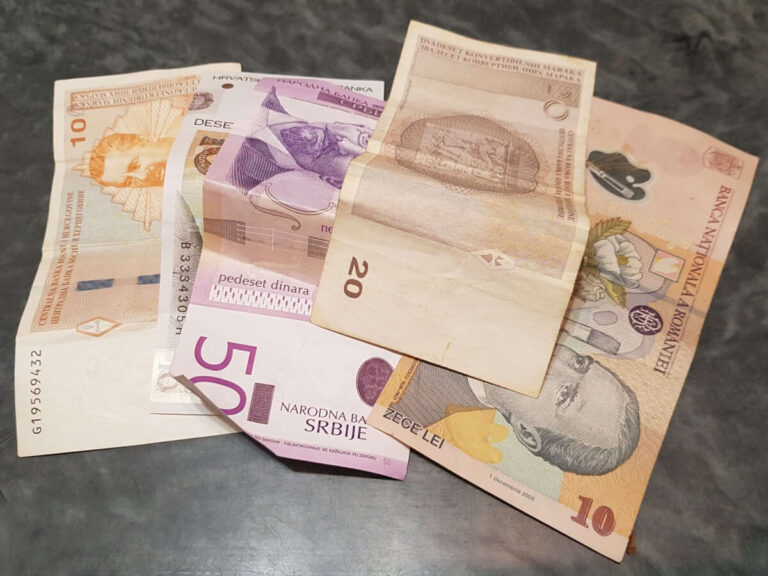
22. Always accept food and drinks
People who discover you are a foreigner might invite you for drinks or food. Just say yes, and if you are in their home, never deny their food or drink. This is one of the key Balkan tips to remember when interacting with the locals.
Balkan people take great pride in their hospitality and are known for their generosity. Not accepting something to drink or eat is considered rude in their culture. They will insist you drink rakija with the locals “if you are a man.”.
I had multiple situations where men would offer me rakija, and if I said no, they would act as if I was less of a man. We don’t need to prove anything to anybody, but I want you to imagine these situations. Being a man in the Balkans is different than in Western Europe; their conception of what is a “real man” is close to the “macho” culture present in many places.
Essentially, food and drinks are a great way to bond in the Balkans. Therefore, embracing these moments and showing appreciation for their food or rakija can significantly improve your travel experience, making it a part of the Balkan tips for anyone looking to connect deeply with the region’s people.
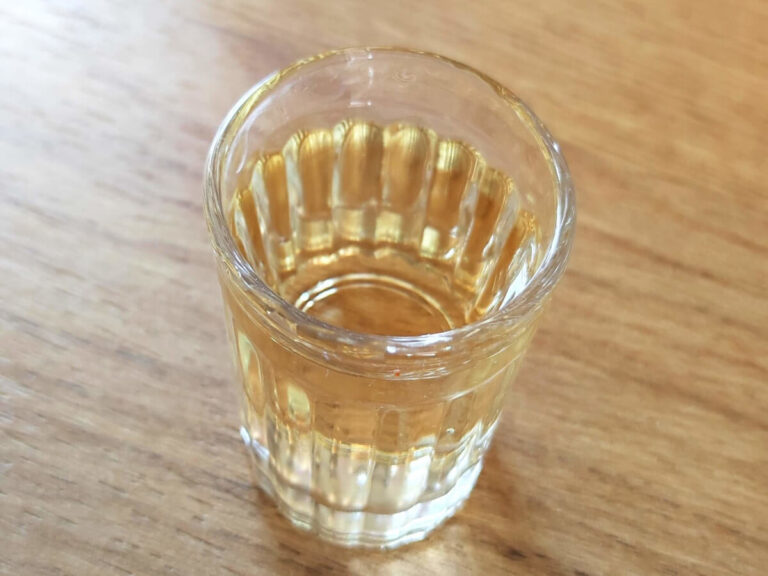
23. You can buy fresh products everywhere
You can buy fresh vegetables and fruits in many cities throughout the Balkans at the green market. Many Balkan people´s tradition is to buy their purchases for the week at the green market.
If you don´t have time to buy your veggies and fruits at the green market, you can buy them while driving through the land roads. Everywhere people sell seasonal products just next to the road.

24. Foreigners are welcomed
I had some non-white friends asking me whether it was safe for them to visit the Balkans. At first, I was surprised by their question – why wouldn´t it be safe?
Then I realized that there are many misconceptions about racism and safety in the Balkans. As a black man, I never had any issues in the Balkans.
People might have negative attitudes in Western European countries with many foreigners, but people in the Balkans are very welcoming to foreigners. As a general rule, the further away your home country is, the more curious people will be about you. This is a important piece of the Balkan tips list, to understand the local mindset towards foreigners.
The difference here is that people don’t have much experience with foreigners living in their country or with an influx of tourists. Because of that, people don’t necessarily harbor many prejudices and will be genuinely curious.
Embracing this curiosity can lead to good interactions, making it an essential part of Balkan tips for anyone looking to integrate well in the region.
25. Ask the locals
Whatever you need and whatever questions you might have during your travels in the Balkans, a strong recommendation is to ask locals.
People in the Balkans are used to helping each other out because they cannot rely on the system. These countries are well-know for problems with corruption and inefficiency, so you shouldn´t hesitate to approach locals for help.
Talking to locals is the best way to find hidden gems in the Balkans. Trust me, the best spots I found during my trips were recommendations of local tour guides or people I met in different places. Word of mouth goes far in this part of the world.
26. A very religiously diverse region
Many different religions characterize the Balkan countries, a diversity that is an essential aspect of the Balkan tips for those looking to understand the region’s cultural scenario. Catholic, Christian Orthodox, and Muslim are the predominant religions in the Balkans.
For instance, Bosnia and Herzegovina has Catholic, Christian Orthodox, and Muslim communities. Meanwhile, Serbia is mainly Christian Orthodox, with a significant Muslim population in the South. Montenegro, similarly, is predominantly Christian Orthodox with a Muslim demographic.
On the other hand, Croatia and Slovenia are primarily Catholic countries. Understanding these religious distributions is crucial for anyone seeking to understand the complex social and cultural dynamics of the Balkans.
27. Don't always rely on online information for transportation
When looking up train or bus schedules, don´t fully rely on websites from smaller towns. In fact, a lot of the information there is outdated. So how do you know what time your bus is departing? Again, ask the locals. Go to the bus station and inform yourself in person about the departure/arrival times to be on the safe side.
Believe me, I learned from my mistakes. Once I wanted to take the bus from Zlatibor to Prijepolje in Serbia and made a mistake in looking up the bus schedule online. I arrived at the bus station on time(15 minutes before the departure time of the bus), but a local told us the bus had left some time ago. He couldn´t believe I searched the internet for the bus schedule.
28. Learn a few words in the local languages
One of the best things to know from the Balkan tips list is to know a few words or sentences in the local language. It is handy and will improve your travel experience everywhere you go. But this knowledge will take you extra far in the Balkan countries. People here are not used to foreigners speaking their language and will be extra kind to you if you make an effort.
Unlike in Germany or France, local people expect you to address them in the local language. You will stand out here, and people will make more efforts for you. Therefore, learn a few local words before your travels.
29. You will stand out
The Balkan countries are homogenous, so if you look different and speak a foreign language, that´s enough to stand out. The more rural areas you visit, the more likely you will stand out and attract attention. But don´t worry, Balkan people are very friendly towards foreigners. The further away you come from, the more curiosity you will encounter. Be prepared to share your story with the locals.

30. Be prepared for the Cyrillic alphabet
Not only are the Balkans religiously diverse, but you will also encounter a variety of alphabets. This interesting detail is an essential part of the Balkan tips list for travelers in the region. Croatia, Slovenia, Romania, and Albania use the Latin alphabet, which is familiar to many people.
Meanwhile, Serbia, parts of Bosnia, North Macedonia, and Bulgaria use the Cyrillic alphabet, presenting a unique challenge for those unprepared. I don’t expect you to learn Cyrillic right before you travel, but it’s important to point this out so you can prepare yourself better.
One practical piece from the Balkan tips list is to use Google Maps while driving, as some street signs will only be in Cyrillic. Additionally, it’s important to note that most state institutions and facilities in these areas exclusively use the Cyrillic alphabet.
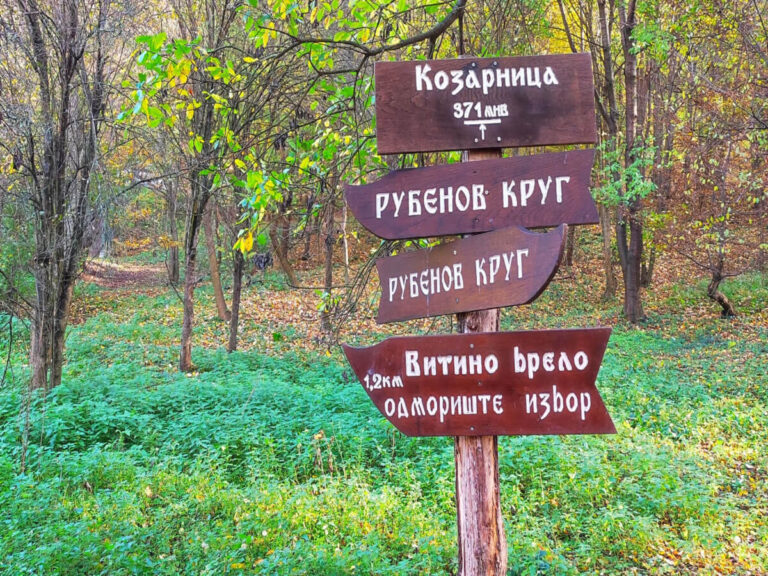
Conclusion
This article describes a list of things you should know about the Balkans before traveling. Hopefully, this list of Balkan tips will give helpful insights to prepare you for your journey.
If you want to learn more about Ecotourism and adventure travel, subscribe to the newsletter to receive emails about the latest posts and information.
See you on the next adventure! Bye!!

